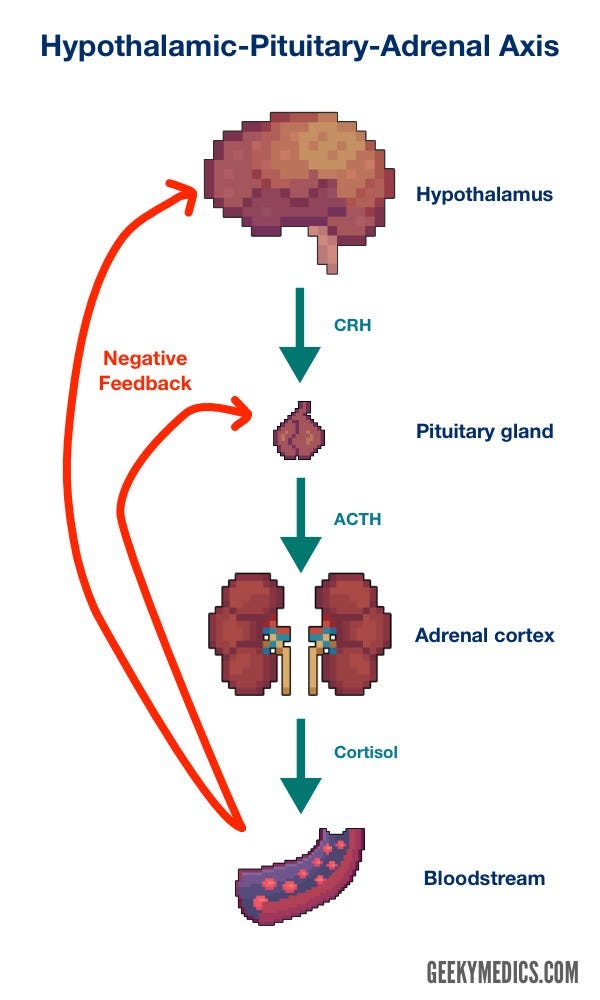Gut Health: All You Should Know
The conversation around gut health gained momentum in 2022. Fitness and dietary influencers all around the world began using their platforms to emphasize the importance of the gut in achieving appearance goals.
The gut is the gastrointestinal tract, which is everything from the mouth to the colon. The primary function of the gut is to digest food, absorb nutrients, and get rid of waste.
Trillions of microorganisms collectively known as the gut microbiome are domicile in the gut. This includes bacteria, fungi, and viruses that live in our digestive tracts.
What Does It Mean To Heal The Gut?
A healthy gut consists of a balanced yet diverse range of a healthy microbiome, microorganisms, and fungi in our digestive tracts.
When your gut microbiome is imbalanced, it could trigger bloating, constipation, diarrhea, and irritable bowel syndrome.
Healing your gut is being intentional about eating habits, diet, quality of food eaten, and hydration.
Gut Health is Beyond Food
In recent times, scientists have discovered that gut health affects more than the digestive well-being of humans.
A healthy gut impacts the mental and physical health of human beings, reducing the risk of diseases and disorders.
The gut is often referred to as the second brain because there is a strong connection between the brain called the gut axis.
The human brain and the gut constantly send information to one another.
There are three connections between the gut and the brain that aid the gut axis:
The Chemical Connection
The gut microbiome creates neurotransmitters like serotonin and dopamine which are chemicals in our brain that make us happy, and regulate our moods and behaviors.
Gut bacteria manufacture up to 95% of the body’s supply of serotonin, which influences both mood and GI activity.
GI Stands for the Gastrointestinal tract which is an organ responsible for digestion, absorption, and excretion of matter.
In essence, it is responsible for controlling your bowel function and plays a role in protecting your gut. Your gut can increase serotonin release to speed digestion to rid your body of irritating foods or toxic products.
The Hormonal Connection
There is a link in the brain called a HPA Axis which stands for Hypothalamic-Pituitary-Adrenal Axis.
It is responsible for a complex set of interactions between the hypothalamus, pituitary gland, and adrenal gland, which is just above your kidney.
Studies have shown that the bacteria in our gut affect the stress response of our HPA-Axis.
The Vagus Nerve
The vagus nerve is the main nerve of your parasympathetic nervous system. It controls specific body functions that cannot be consciously controlled such as digestion, heart rate, and immune system.
One of the core functions of the vagus nerve is directing the stomach to churn food and produce stomach acid for digesting the food.
How Does Gut Health Affect Physical Health?
An important connection between gut health and physical health is the immune system.
The immune system is a complex network of organs, cells, and proteins that defend the body against infection while protecting the body’s cells.
Studies show that 70% of our immune cells live in the bowel and colon, constantly interacting with the gut bacteria.
How to Maintain A Healthy Gut
Eat a Balanced Diet
Maintaining a balanced diet is necessary to promote gut health. Eating only processed and sugar-rich food can significantly damage gut health and cause obesity.
Dietary diversity aids the maintenance of the gut microbiome. Eating fruits and vegetables, especially plant-based food, can significantly improve gut health because they encourage the growth of good bacteria in the gut.
This can be achieved by integrating vegetables into daily meals.
Other types of foods that are great for gut health are wheat, oats, corn, oat milk, almond milk, nuts, and seeds.
Get Quality Sleep
Sleep can greatly impact gut health, positively and negatively.
Sleep deprivation can impact the gut microbes negatively, increasing inflammation and stress hormones in the body because of the link between the gut and the brain.
Take Probiotics
Probiotics are food or supplements that contain life microorganisms that maintain or improve the good bacteria in the gut, benefitting gut health overall.
Although probiotics help with metabolism, they do not colonize your gut so they have to be consumed regularly for best results.
Exercise Regularly
Regular exercise improves the general well-being of the body. It has various benefits to the human body such as strengthening the immune system, improving mental health, controlling weight, and combating illnesses.
Exercising regulates bowel movements by strengthening the muscles in the gastrointestinal tract, which improves intestinal contractions. This stimulates the movement of waste through the colon.
Stay Hydrated
Water makes up the majority of our body weight and plays an important role in keeping us healthy.
It performs important functions in the body such as flushing out waste, regulating body temperature, and helping the brain to function.
Water also helps to break down food eaten, allowing its nutrients to be absorbed by the body.
Low water intake could lead to issues like constipation, a common problem that is characterized by infrequent bowel movements and difficulty with passing stool.
Increasing water intake is the most recommended remedy for constipation.
Conclusion
Keeping a healthy gut is necessary for healthy living through simple yet impactful actions like drinking water, maintaining a balanced diet, exercising regularly, getting quality sleep, and taking probiotics.
By making these actions a part of one’s lifestyle, individuals can keep a balanced yet diverse range of a healthy microbiome and will reap the rewards through improved digestion, immunity, mood, and overall well-being in the long run.
Let’s commit to maintaining good health by nourishing our bodies with wholesome foods that support a flourishing gut microbiome, and enjoy the benefits of a healthier, happier life.







